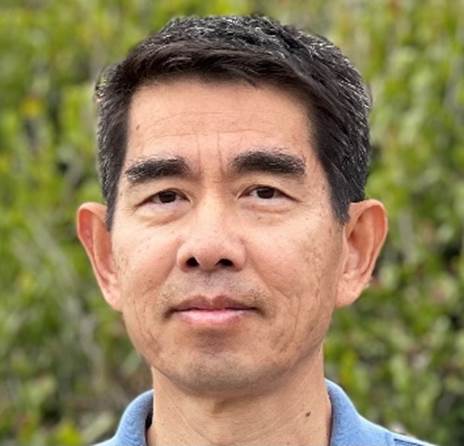Title: A Method for Low-Latency Secure Multiple Access
Prof. Yingbo Hua, IEEE Fellow, University of California, Riverside
时间:2024年10月18日上午10点
地点:信息大楼A433
Abstract: For applications such as Virtual Reality, Artificial Intelligence, federated learning, autonomous driving, etc., next generation networks must allow low-latency secure multiple access. Multiple access is necessary to provide local wireless connections for massive numbers of devices with limited physical resources. Security and privacy are among the major requirements from network owners and consumers alike. Low latency is essential to ensure the feasibility of any real-time networked control systems and to provide high-quality consumer experiences. This talk presents a method of physical layer security to achieve a combined goal of multiple access, security and low-latency. The traditional methods for key generation and management are costly. The use of nonce at the networking layer for communications between AP and each UE can be effective for privacy but is not spectrally efficient or of low latency. To reduce the spectral usage or latency of the transmissions between AP and all UEs, a common nonce could be broadcasted by AP and later be used by all UEs for uplink. In this case, however, any of the UEs could eavesdrop on the transmissions from other UEs. A secret key between AP and each UE could be locally generated by the two nodes exploiting the wireless channel between them. A vast majority of the prior methods for secret key generation (SKG) require a reciprocal wireless channel. But the secret-key rate based on this approach is very limited when the channel environment is, for example, static. Many efforts to produce a positive secret-key rate with or without channel reciprocity in static environment have failed until very recently. To achieve low latency and information security between two nodes, there have been recent papers on short-packet theory for wiretap channel (WTC) system. But just like the long-packet case, the secrecy rate of the short-packet scheme shown in those works is always zero whenever eavesdropper's channel is stronger than the channel between the legitimate users. The applicability of the short-packet theory to multiple access is another major hurdle not yet resolved. A method called “Secret-message Transmission by Echoing Encrypted Probes (STEEP)” promises to break the above barriers. It is now established that regardless of channel reciprocity, one node can effectively send a secret key to another with a positive secret-key rate even if eavesdropper's channel is stronger than that between the two nodes. An extension of STEEP to multiple access (MA), or MA-STEEP, is particular useful for Low-Latency Secure Multiple Access.
BIO:Yingbo Hua is Distinguished Professor, Fellow of IEEE, AAAS and AAIA, Department of Electrical and Computer Engineering, College of Engineering, UNIVERSITY OF CALIFORNIA, Riverside, CA. Dr. Hua has published more than 350 articles in the fields of signal processing, wireless communications and sensor networks, including such topics as high resolution methods, sensor array processing, blind source separation, blind system identification, reduced rank estimation, principal component analysis, subspace tracking, MIMO relay beamforming, MIMO channel estimation, multi-hop networks, resource allocation, full-duplex radio, and wireless network security. Since 1994, he has served in various capacities on the Editorial Boards/Steering Committee for IEEE Transactions on Signal Processing, IEEE Signal Processing Letters, Signal Processing, IEEE Signal Processing Magazine, IEEE Wireless Communications Letters, and IEEE Transactions on Signal and Information Processing over Networks. He also served as Guest Editor for a number of journals including IEEE Journal of Selected Areas in Communications. He is a former member of IEEE SPS Technical Committees on Underwater Acoustic Signal Processing, Sensor Array and Multichannel Signal Processing, and Signal Processing for Communications and Networking. He has served on organizing and technical committees for numerous international conferences and workshops since 1992. He was elected to Fellow of IEEE in 2002 and Fellow of AAAS in 2011.


